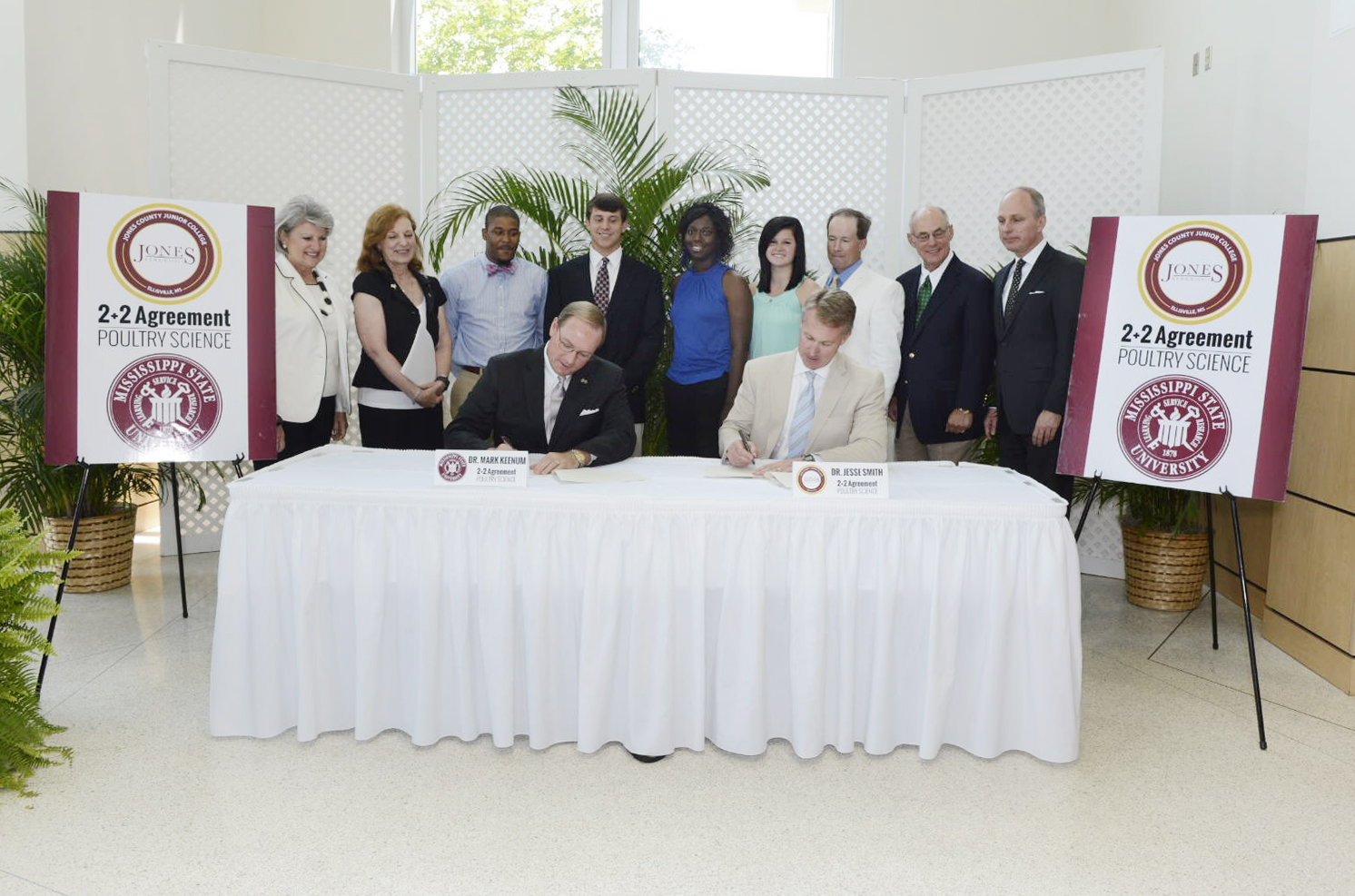Contact: Margaret Kovar

Photo by: Beth Wynn
Mississippi State President Mark E. Keenum and Jones County Junior College President Jesse Smith announced Friday [Aug. 2] that JCJC students transferring to MSU's poultry science program can expect a smoother transition thanks to a new two-plus-two agreement.
The agreement goes into effect this fall and allows specific courses in JCJC's curricula to transfer to MSU's poultry science program. It is one of numerous two-plus-two curriculum agreements MSU has with Mississippi community colleges.
"This collaboration between our university and JCJC is a win-win for both institutions and for the state of Mississippi as we prepare well qualified professionals to work in a field that is of tremendous importance to our economy," Keenum said.
MSU's 19th president also gave the summer commencement address to JCJC's 2013 summer graduates during his visit to the Ellisville campus.
Designed to aid in a seamless transition from community colleges to MSU, two-plus-two programs place students on the road to a bachelor's degree while completing their first two years of a course of study at a community college. Because of the new agreement, students interested in a poultry science degree can complete their freshman and sophomore years at JCJC without the worry that some classes might not transfer when they enroll at MSU.
Streamlining the process for both students and faculty was the driving force behind the modifications.
"We wanted to make it easier for all those involved," said Mary Beck, poultry science professor and department head. "These changes mean less cost and less time at college for the students."
MSU's poultry science department is one of only six across the nation. The program offers four degree tracks: production systems, business management, processed products and pre-veterinary medicine. Beck said the strong science content of the curriculum makes it an excellent fit for pre-veterinary students and students interested in graduate studies.
As Mississippi's premier agricultural industry, poultry generates $2.47 billion each year and represents 33 percent of the state's total farm-gate value. Jones County is home to the state's biggest broiler producer, Sanderson Farms. With poultry such an important part in the state's economy, students graduating with a poultry science degree have numerous opportunities ahead of them, Beck said. A high percentage of those who apply to vet school with the bachelor's degree are accepted.
And students heading straight into a career in the industry can expect 100 percent job placement, Beck said.
"We could place double the number of students," she said. "We can't supply enough students for the industry's needs."
The department hopes to make similar agreements with other community colleges. For more information about Mississippi State University, visit www.msstate.edu.